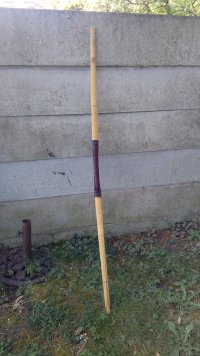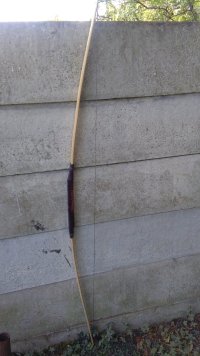Hello and welcome to the forum.
Ignore Erbswurst

While there are some archers and bowyers here, I think you will make more progress with a dedicated archery forum. There was recently a thread that talked quite a lot about bow making and information resources.
My current practical history question is what did Native Americans use... my guess would be stone tools (scrapers) -- iirc there's a Ray Meade episode where they build a longbow with stone tools and folks have been making copies of "Otzi's) bow using the tools he carried...

bushcraftuk.com
There are links to some really good dedicated bow forums in the thread above.
Wayne, one of the other moderators here teaches building bows from bamboo at our summer Moot gathering. Another Mod put together an article for his Blog - building a bhutanese bow
Back in August of 2012 at the BCUK Bushmoot I learnt how to make a Bhutanese Bow with Wayne Jones of Forest Knights. As far as I know Wayne is the only instructor in the UK running classes in …

www.bushcraftdays.com
You can get away with a lot of board imperfections if you glue a backing material to the wood. One of the best is linen in its raw fibre form, but you can use linen cloth. You can find threads about linen backing board bows. You can use other things to back bows, like rawhide, and bamboo, although bamboo is so strong in tension that it can cause the belly wood side to crush, so not recommended just yet.







